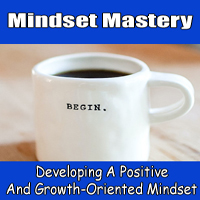



Procrastination, that crafty adversary lurking in the shadows of our ambitions, has the power to thwart our journey to success. We've all experienced the lure of delay, the art of excuse-making, and the seductive embrace of instant gratification. Yet, there is a path to success that involves conquering procrastination, and it's a road well worth traveling.
Understanding The Link Between Procrastination And Success: Procrastination is often seen as the antithesis of success. It's the habit of postponing important tasks, leading to missed opportunities and unfulfilled dreams. In contrast, success is typically associated with discipline, goal setting, and consistent effort. To embark on the road to success, one must confront and overcome the procrastination habit.
The Journey To Overcoming Procrastination:
Self-Awareness: The first step on the road to success is self-awareness. You must acknowledge and understand your procrastination tendencies. What are your triggers? When do you find yourself procrastinating the most? Self-awareness is the foundation upon which you can build effective strategies to combat procrastination.
Goal Setting: Success is often built upon clear and well-defined goals. Set both short-term and long-term goals that are specific, measurable, achievable, relevant, and time-bound (SMART). When you have a compelling vision of what you want to achieve, it becomes easier to resist the temptation of procrastination.
Time Management: Effective time management is a crucial tool for success. Create schedules and to-do lists to structure your day. Use time management techniques like the Pomodoro Technique to break work into manageable intervals, helping you maintain focus and productivity.
Prioritization: To achieve success, you must learn the art of prioritization. Focus on high-impact tasks that move you closer to your goals. Recognize that not all tasks are created equal, and some deserve more attention than others.
Accountability: Share your goals with a trusted friend, mentor, or coach who can hold you accountable. This external accountability can provide the motivation needed to avoid procrastination.
Consistency: Success is often the result of consistent effort. Establish routines and habits that support your journey. Consistency is your ally in the battle against procrastination.
The Fruits Of Overcoming Procrastination: When you embark on the road to success by overcoming procrastination, you will begin to experience a profound transformation in your life. You'll notice increased productivity, improved time management, and a heightened sense of achievement. Procrastination will no longer be a formidable foe, but a vanquished enemy.
Success will become more than a distant goal; it will be a tangible reality. The road may be challenging, with occasional detours and hurdles, but it's a path that leads to fulfillment, self-realization, and the realization of your dreams.
The road to success is paved with the determination to overcome procrastination. It's a journey of self-discovery, discipline, and effective time management. By understanding the connection between procrastination and success and implementing strategies to combat procrastination, you can set yourself on a course toward the achievements you've always desired. Success is within your grasp; all you need to do is take the first step on the road to overcoming procrastination.


The Journey Within Through Solitude
 Solitude is not synonymous with loneliness or isolation; rather, it is a deliberate and purposeful choice to spend time alone, free from external distractions. It is in these quiet moments that we have the opportunity to connect with our inner selves and uncover the wellspring of inner peace that often remains hidden beneath the surface.
Solitude is not synonymous with loneliness or isolation; rather, it is a deliberate and purposeful choice to spend time alone, free from external distractions. It is in these quiet moments that we have the opportunity to connect with our inner selves and uncover the wellspring of inner peace that often remains hidden beneath the surface.
Finding inner peace through solitude begins with the act of slowing down. In a world that glorifies busyness, it can be challenging to pause and embrace the stillness. However, when we create a space for solitude, we allow ourselves to step away from the frantic pace of life, unplug from technology, and escape the constant noise. This simple act of slowing down is the first step towards finding peace within.
Solitude provides the environment for deep self-reflection. As we sit in the silence and listen to our thoughts and feelings without the interference of external influences, we gain insight into our own inner world. We can uncover the sources of stress, anxiety, and restlessness, and begin to address and heal them. This self-awareness is a crucial aspect of finding inner peace.
Overcoming The Impostor Within
 The Origins Of The Fear Of Being Exposed
The Origins Of The Fear Of Being Exposed
The fear of being exposed often has deep-seated roots in one's psyche. It can stem from childhood experiences, societal pressure, or unrealistic expectations, all of which contribute to a sense of inadequacy. Some individuals develop this fear as a response to external criticism or pressure to conform to unrealistic standards of perfection. As a result, they internalize the belief that they must constantly hide their vulnerabilities to maintain a facade of competence.
Impostor Syndrome And The Fear Of Exposure
The fear of being exposed is a hallmark feature of impostor syndrome, a phenomenon that plagues high-achievers who doubt their own abilities and believe they don't deserve their success. Impostor syndrome often manifests as a fear of being discovered as a fraud, even when external evidence suggests otherwise. The fear of exposure can be particularly paralyzing because it fuels self-doubt and inhibits individuals from fully embracing their accomplishments.
Strategies To Overcome The Fear Of Being Exposed
Acknowledge Your Feelings: The first step to conquering the fear of being exposed is recognizing and acknowledging it. Understand that these feelings are common and do not reflect your true capabilities.
Challenge Negative Self-Talk: Combat the inner critic by questioning and challenging negative self-talk. Replace self-deprecating thoughts with affirmations of your achievements and capabilities.
 Goal Setting: Setting meaningful and achievable goals is crucial for personal development. Goals provide direction and purpose. They help you focus your efforts and measure your progress. Whether your goals are related to career, relationships, or self-improvement, they act as stepping stones toward your ideal self.
Goal Setting: Setting meaningful and achievable goals is crucial for personal development. Goals provide direction and purpose. They help you focus your efforts and measure your progress. Whether your goals are related to career, relationships, or self-improvement, they act as stepping stones toward your ideal self.
Continuous Learning: A commitment to lifelong learning is a cornerstone of personal development. Seek knowledge, acquire new skills, and embrace opportunities for growth. Reading, attending workshops, taking courses, and seeking mentorship are excellent ways to expand your horizons.
Resilience And Adaptability: Personal development often involves facing challenges and setbacks. Resilience is the ability to bounce back from adversity, while adaptability is the skill of embracing change. Both traits are vital for personal growth, as they enable you to overcome obstacles and thrive in an ever-changing world.
Self-Reflection: Regular self-reflection is essential for personal development. It helps you assess your progress, refine your goals, and adjust your strategies as needed. Self-reflection also fosters mindfulness and helps you make informed choices.
Time Management: Effective time management is a key to personal development. By prioritizing tasks and managing your time efficiently, you can make the most of each day, maximizing your productivity and progress.
Seeking Feedback: Personal development often benefits from external feedback. Seek input from mentors, peers, and trusted individuals who can provide constructive advice and guidance. Constructive feedback can highlight areas for improvement and offer fresh perspectives.






Embracing The Transformative Power Of Adaptation
 One of the keys to thriving through change is resilience. Resilience is the ability to bounce back from adversity and adapt to new circumstances. It's about not just weathering the storm but using it as an opportunity for growth. Resilient individuals view change as a chance to learn, improve, and become stronger.
One of the keys to thriving through change is resilience. Resilience is the ability to bounce back from adversity and adapt to new circumstances. It's about not just weathering the storm but using it as an opportunity for growth. Resilient individuals view change as a chance to learn, improve, and become stronger.
Moreover, embracing change with a positive mindset is essential. Instead of focusing on what is lost, concentrate on what can be gained. Change often opens new doors, allowing you to explore uncharted territories, acquire new skills, and broaden your perspective. This positive approach can turn a challenging transition into a fulfilling adventure.
To thrive through change, it's vital to have a sense of purpose. Having a clear sense of your goals and values can provide a guiding light during uncertain times. When you understand your purpose, you're more likely to make decisions that align with your long-term vision, even when facing obstacles and transitions.
Strategies are also crucial in thriving through change. These can include setting clear goals, breaking the change into smaller, manageable steps, and seeking support from others who have experienced similar transitions.
 One of the most significant advantages of solitude is its capacity to provide the mind with a much-needed break from the continuous bombardment of external stimuli. In a world where we are constantly juggling work, family, social commitments, and the omnipresent digital devices, the mind rarely finds a moment of respite. Solitude allows us to escape this chaos and provides an opportunity to rest, reset, and recharge.
One of the most significant advantages of solitude is its capacity to provide the mind with a much-needed break from the continuous bombardment of external stimuli. In a world where we are constantly juggling work, family, social commitments, and the omnipresent digital devices, the mind rarely finds a moment of respite. Solitude allows us to escape this chaos and provides an opportunity to rest, reset, and recharge.
When we spend time alone, free from the distractions of the outside world, our mind can wander freely. This mental wandering often leads to profound self-discovery. In solitude, we can connect with our innermost thoughts, emotions, and desires. It's an opportunity to listen to our own inner voice without the influence of external opinions or societal expectations. This self-awareness is the foundation of personal growth.
Solitude nurtures self-reflection, which is essential for understanding our past experiences, learning from our mistakes, and setting intentions for the future. Through introspection, we gain insight into our strengths and weaknesses, our values and goals, and our dreams and fears. This knowledge empowers us to make more informed decisions and take intentional steps toward a more fulfilling life.
The Key To Success In Life And Work
 Components Of Emotional Intelligence
Components Of Emotional Intelligence
Emotional intelligence can be broken down into several key components:
Self-Awareness: This is the ability to recognize and understand one's own emotions, moods, and reactions. It's the foundation upon which other aspects of emotional intelligence are built.
Self-Regulation: Self-regulation involves managing and controlling one's emotions, especially in challenging situations. It enables individuals to respond to stress or conflict with composure rather than impulsivity.
Empathy: Empathy is the capacity to comprehend and share the feelings of others. It enables us to connect on a deeper level with friends, family, and colleagues, fostering better relationships.
Social Skills: Social skills encompass the ability to build rapport, communicate effectively, and resolve conflicts. People with high emotional intelligence tend to be excellent at working in teams and managing interpersonal dynamics.
Motivation: Motivation within the context of emotional intelligence refers to the drive to achieve personal and professional goals. It involves persistence, optimism, and the ability to stay focused on objectives.